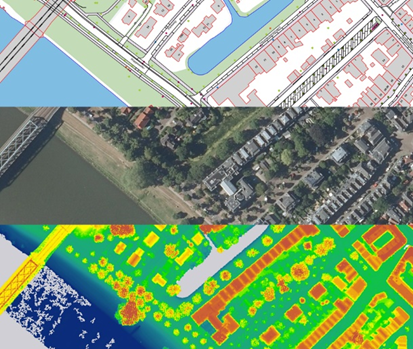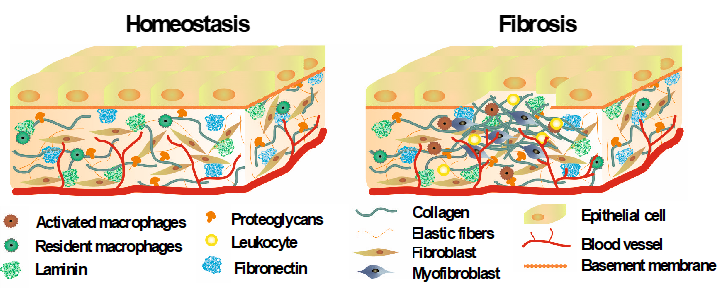The funding falls within the Open Technology Programme (OTP) of the Dutch Research Council (NWO). The research into automating the creation of new maps using old maps is being led by Dr Sander Oude Elberink (ITC Faculty), and the research on 'organ-on-a-chip' models for research into fibrotic diseases by Prof Séverine Le Gac (EEMCS Faculty).
Learning from old maps
In our rapidly changing society, maps become outdated quite quickly. Sander Oude Elberink's research focuses on automating the creation of new maps by using old maps, 2D aerial photos and 3D laser scanner data. "We want to make use of a gigantic database of existing maps," says Oude Elberink. Those old maps serve as training data for a deep learning network. The existing maps in combination with the 2D and 3D data teach the network how objects appear in the data and how to delineate them on a map.

Organ-on-a-chip (FibOoC)
Séverine Le Gac is researching a new way to study fibrosis and develop new treatments. In the FibOoC research project, fibrosis will be simulated in an 'organ-on-a-chip' based on human cells. "By using cells from patients, we can mimic characteristics of the disease where this is not possible with animal cells," says Le Gac. The project is a follow-up to a TURBO grant between the UT and Radboudumc. It is a large consortium together with Radboudumc, Fluigent, BEOnChip, Mercuna, Predica Diagnostics, Proefdiervrij, Reuma Nederland and the University of Veterinary Medicine Vienna.

Comparison between healthy and fibrotic tissues. Schematic representation of healthy and fibrotic tissues showing abnormal ECM deposition in fibrosis through excessive synthesis and reduced degradation of the ECM, and activation of the fibroblasts and macrophages in the case of fibrotic tissues. Cartoon by Dr Zuchowska.
More information
NWO's Open Technology Programme offers funding for excellent research with a view to possible applications of the results. This offers organisations a low-threshold way of linking up with scientific research that must lead to applicable knowledge.





